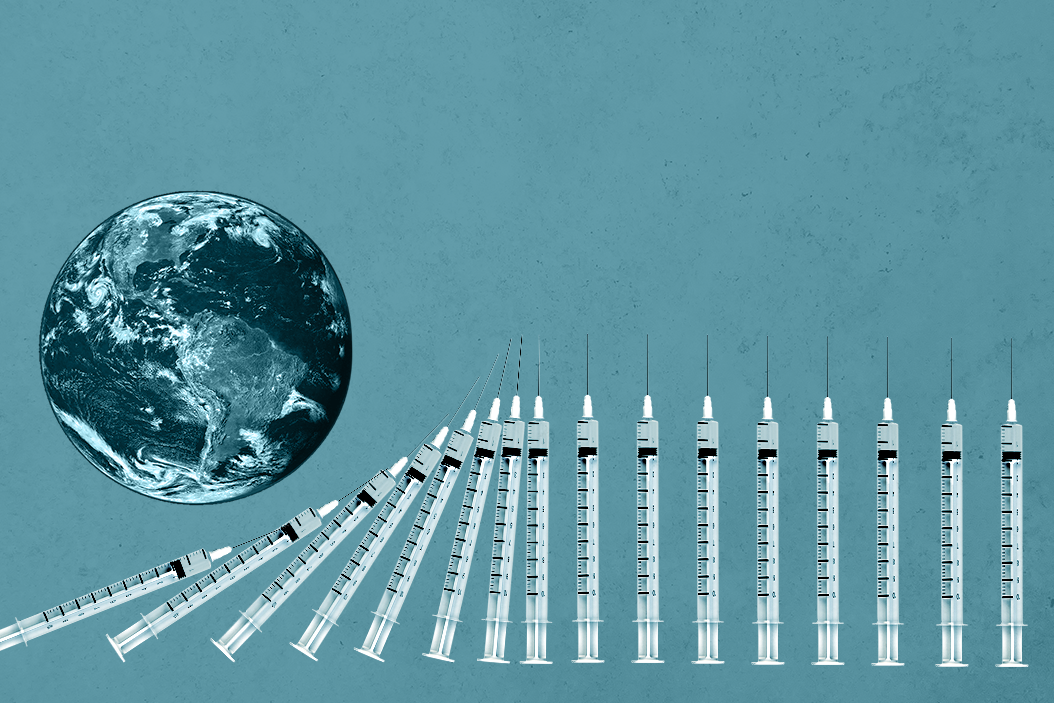The most ambitious global vaccination drive in history is in motion. Over the past three months, more than 213 million COVID-19 shots have been administered across 95 countries, and the vaccination rate is slowly increasing. At the current rate, around 6.11 million doses are being administered daily.
It's a rare bit of hopeful news after 15 months of collective misery. So where do things stand at the moment, and what's keeping the world from getting to herd immunity faster?
Vaccines for the neediest. The COVAX facility, formed last summer to ensure cash-strapped countries get their hands on vaccines, shipped the first batch of AstraZeneca vaccines to the West African country of Ghana on Wednesday. Neighboring Ivory Coast will be next in line, and could start vaccinating its 26 million people as soon as next week.
The COVAX rollout is a big deal given that so far, 75 percent of all shots worldwide have been administered in just 10 wealthy countries. But there are still massive shortfalls in the program. For one thing, the facility's commitment to provide 2 billion vaccines to 92 low-income countries covers shots for only 20 percent of the population in those states, far below the herd immunity threshold of about 70 percent. For another, the vaccines are arriving slowly: Ghana, for instance, has received only 600,000 doses, covering 1 percent of its population.
So far, COVAX's ability to reach its goal remains precarious, in part because of funding shortfalls as well as global supply issues — drugs simply aren't being made fast enough to cover people spanning the 54 countries waiting on jabs through the scheme.
Early stars of the vaccine show. Several countries are doing a top-notch job at getting needles into arms.
When South America became a COVID hotspot last summer, Chile emerged as an epicenter within an epicenter, recording one of the world's fastest growing caseloads. Now, Chile is overseeing one of the world's most efficient vaccine rollouts, having vaccinated over 16 percent of its population already, the fifth highest in the world. Santiago succeeded by diversifying its procurement efforts (buying doses from China's Sinovac, Pfizer-BioNTech, as well as through COVAX), and turning any public space into a mass vaccination site.
Israel has now vaccinated over 88 percent of its population of 9 million, leading the global vaccination race by a long shot. Analysts say that Israel's digitized universal health-care infrastructure has made it easier to monitor the vaccination drive and quickly identify groups of eligible people. But for all its successes, Israel has not ensured equitable access to Palestinians living in the occupied West Bank, many of whom regularly cross into Israel. At the same time, the government plans on sending up to 100,000 doses to far-flung places like Honduras, Chad, and the Czech Republic in exchange for their diplomatic backing.
Lastly, after the UK bungled its pandemic containment effort (it has one of the world's highest per capita death tolls) Prime Minister Boris Johnson reversed course to manage one of the most efficient vaccine drives in the world. Having inoculated a third of all British adults (with at least one dose), British authorities now say that all adults should get a first COVID shot by July 31, more than a month earlier than originally planned.
Queue jumping and inequality. Still, access to vaccines remains deeply unequal within many countries.
The World Bank this week threatened to cut off funding for cash-strapped Lebanon's vaccine program after Lebanese politicians bypassed eligibility rules to secure vaccines for themselves and their cronies. This took place mere weeks after the country experienced a surge in COVID cases, overwhelming hospitals. The revelation sparked outrage among many Lebanese already disillusioned by the corruption plaguing the country's ruling elite.
A similar scandal has gripped Peru, where some 500 former and current government officials admitted to skipping vaccine queues to snatch jabs intended for healthcare workers.
Lastly, inequality of access isn't just a problem at the global scale — it's happening even within some of the wealthier countries that have had easy access to vaccines — like the US. While America's piecemeal vaccine drive has ramped up after a shaky start, access for Black and Latino communities still lags in many parts of the country. California Governor Gavin Newsom came under fire when it emerged that of the 7.3 million doses administered in the state, only 2.9 percent have gone to Black residents, who make up 6.5 percent of the population, and 16 percent to Latinos (who account for 38 percent). Similar trends have been detected in New York.
